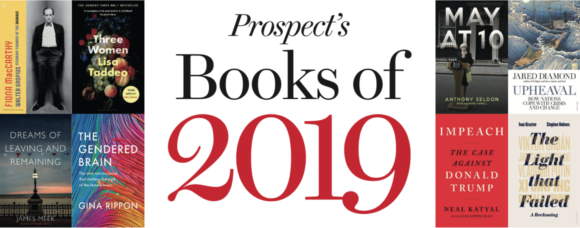
Ideas do not merely describe the world; they have the power to change it. In 2019, Yellow Vest protesters crippled much of France, forcing Emmanuel Macron to retreat from his economic reforms. Their resentment is both explained and encouraged in Christophe Guilluy’s Twilight of the Elites (Yale), an attack on the bourgeois bohemians who erect citadels of privilege around them. Railing against the “Uberisation” of society, Guilluy is impatient with both neo-liberalism and multiculturalism, which he claims is an economic trick played on the white working classes. In Eastern Europe, argue Ivan Krastev and Stephen Holmes in their compelling and witty The Light That Failed (Allen Lane), the post-1989 liberal dream has become an illiberal nightmare because of the psychological humiliation involved in moving to a westernised system. Plus there is a migration problem: tens of millions of the most talented have fled Poland and Hungary.
The secret of a country’s ability to recover from failure, says Jared Diamond in Upheaval (Allen Lane), is judiciously borrowing from other countries. In 1868, the Japanese Shogun was overthrown and a new era inaugurated that mixed European with traditional Japanese features. The reformers modelled their constitution not on the US one, but on the German, which of course accommodated the presence of an emperor.
In the 20th century, Japan’s regional rival China put enormous effort into exporting its distinctive communist ideology. Julia Lovell’s Maoism (Bodley Head) tells the gripping story of how it proved disastrous in places as different as Cambodia, Peru and Zanzibar. In China itself there was once a reckoning with the Chairman, but the current leader Xi Jinping has adopted a Mao-style personality cult with a fondness of Party purges and ideological orthodoxy.
For such a discredited idea, racism has had a surprisingly persistent history. Toni Morrison, who died in 2019 aged 88, continually wrestled in her fiction with the inheritance of slavery and discrimination. In her essay collection Mouth Full of Blood (Chatto & Windus) she quotes Thomas Jefferson: “Never yet could I find that a black had uttered a thought above the level of plain narration.” Over here, the journalist Nesrine Malik takes up Morrison’s theme in We Need New Stories (W&N), arguing that the supposed dangers of political correctness and threats to free speech are distortions invented by powerful people wishing to preserve their own safe spaces.
Invisible Women (Chatto & Windus) by Caroline Criado Perez takes the truism that ours is a world designed for men and backs it up with evidence. Impressively collating vast amounts of research, Criado Perez proves how the data gap affects all areas of women’s lives. Everything from safety belts in cars to the recognised symptoms of cardiac arrest are designed—without us even realising—to prioritise men’s experiences as the default.
Exactly who owns the data that is collected, and to what purpose it is put, is tackled by Shoshana Zuboff in her influential work The Age of Surveillance Capitalism (Profile). Big tech companies like Google, Facebook and Tinder unilaterally claim the right to turn human experiences into profitable data. That data is “fabricated into prediction products that anticipate what you will do now, soon, and later.” In the future, perhaps ideology will be less important in shaping our behaviour than the hidden algorithms conjured by Mark Zuckerberg.













